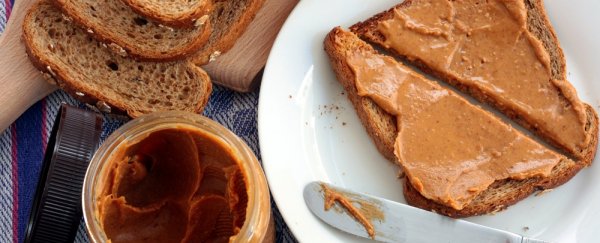A small Australian study has shown that giving children an oral dose of peanut protein alongside a probiotic could help alleviate peanut allergies in as little as 18 months.
The trial, run by researchers from the Murdoch Childrens Research Institute in Melbourne, involved 60 children with peanut allergies.
A group of 28 of the children was given a daily dose of peanut protein combined with a probiotic, Lactobacillus rhamnosu. Over 18 months, the dose of peanut protein was gradually increased every two weeks until it reached a maintenance dose of 2 grams of peanut protein - the dose of probiotic was equivalent to eating 20 kg of yoghurt. The other participants were given a placebo.
Incredibly, at the end of the 18-month trial, 80 percent of the children could eat peanuts without any reaction. Only 4 percent of the placebo group could tolerate proteins.
"It appears that we have been able to modify the allergic response to peanut such that the immune system produces protective responses rather than a harmful response to the peanut protein," said lead researcher Mimi Tang in a press release.
"Many of the children and families believe it has changed their lives, they're very happy, they feel relieved," she told Australian Associated Press in a story published at The Guardian. "These findings provide the first vital step towards developing a cure for peanut allergy and possibly other food allergies."
However, she warns that it's still too early for parents to try the treatment at home, as it requires medical supervision.
"This treatment must be only be given under close medical supervision as we are giving peanut to children who are allergic to peanut, and children did have allergic reactions," said Tang in the release. "Nevertheless, the likelihood of success was high - if nine children were given probiotic and peanut therapy, seven would benefit."
Currently, almost three percent of Australian children suffer from peanut allergies, and around the world the number has been increasing rapidly. The allergy is usually life-long and is the leading cause of food allergy fatalities, as a result of anaphylaxis. Alternative treatments peanut allergies are currently being trialled, including this patch that gradually exposes children to a low dose of peanut extract.
But this oral treatment offers a cheap and easy solution to the problem that could easily be widely distributed. The team will now conduct a follow-up study to find out whether the children remain tolerant of peanuts if they're removed from their diet for eight weeks. This will show how long-term the treatment is.
And if it turns out that this treatment can give more children the ability to enjoy peanut butter, or even just be in the same room as a peanut without suffering, then that would be incredible.
Source: The Guardian
